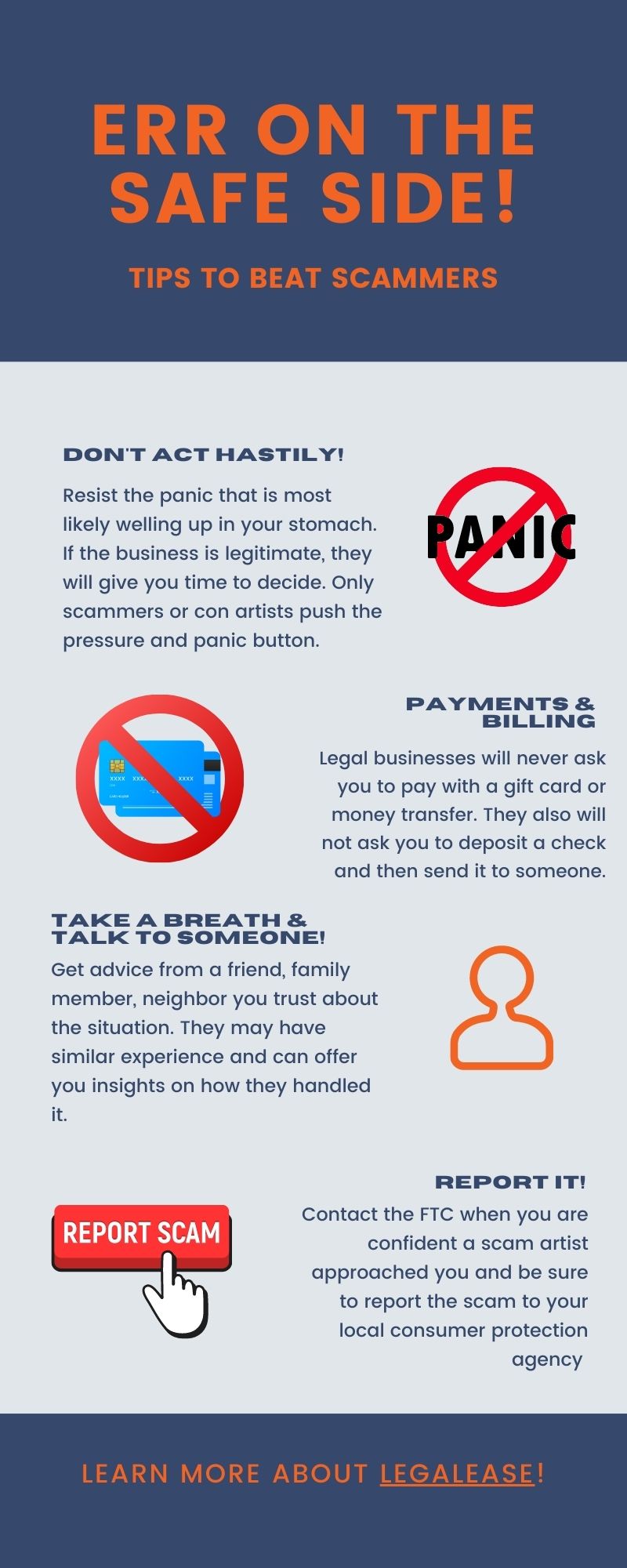Resist the Panic! Tips and Tricks Scammers Don't Want You To Know
You just got that call from Apple Support regarding your compromised Apple ID, the key to your credit cards, your personal information, your banking…everything! You're not alone.
Fraud activity is a faster-moving epidemic than COVID-19. Many frauds and scams go unreported, but in 2021, nearly one in three Americans said they had fallen victim to a phone scam.
A 2021 article by Truecaller Report noted that "As many as 59.49M Americans (23%) report having lost money as a result of phone scams in the months previous (2020) – up from 56 million (22%) in 2020."
Neither number is easy to swallow, especially with the ever-increasing reliance on mobile and web-based devices. With COVID-19 still plaguing the globe, our dependence on mobile devices increased even further, consequently increasing the amount of fraud and scams circulating.
Recognizing a scam is the number 1 trick to avoiding being a victim.
- Scammers play the FAMILIAR game by using an organization you are familiar with along with a "real" name such as "John Brown" from the Social Security Administration or "Chris Smith" from the IRS. To gain your trust, they often take it further and use a company you
 may be intimately familiar with, such as a utility company, credit card company, or even a charity. They'll often mimic a phone number that shows on your caller id.
may be intimately familiar with, such as a utility company, credit card company, or even a charity. They'll often mimic a phone number that shows on your caller id. - Block unwanted calls and texts: Take steps to block the unwanted calls/texts.
- Download a call-blocking app
- Check to see if your phone has any built-in blocking features
- Check with your service provider to see if they offer screening services
- Legitimate organizations won't call, email or text you to request your personal information. Why should they? If they are honest and you have done business with them, they will have all the information in their system before the call with you.
If you get an email or text from a company you do business with, and it seems real, err on the safe side: do not click on the links nor call a number they give you or call the phone number listed on your called id.
- Do not act hastily! Resist the panic that is welling up in your stomach. If the business is legitimate, they will give you time to decide. Only scammers or con artists push the pressure and panic button.
- Legal businesses will never ask you to pay with a gift card or money transfer. They also will not ask you to deposit a check and then send it to someone.
- When all else fails, and all your buttons are blinking at you, causing your blood pressure to skyrocket in premium panic…tell a friend, family member, neighbor you trust about the situation to get their insights and perspectives.
- Report it! Lastly, contact the FTC when you are confident a scam artist approached you. Gather emails, receipts, and phone numbers, and be sure to report the scam to your local consumer protection agency which you can locate at https://www.usa.gov/state-consumer.
For more tips, please visit FTC Consumer Information.
Here at LegalEASE, we believe in being fully prepared and confident. Get the peace of mind you want and the protection you need with a LegalGUARD Plan. LegalGUARD offers valuable benefits to shield your family and savings from unexpected legal issues
References
- “TRUECALLER INSIGHTS 2021 U.S. SPAM & SCAM REPORT,” Trucaller, June 28, 2021, https://truecaller.blog/2021/06/28/us-spam-scam-report-21/
- “How To Recognize and Avoid Phishing Scams,” Federal Trade Commission Consumer Information, May 2019, https://www.consumer.ftc.gov/articles/how-recognize-and-avoid-phishing-scams
